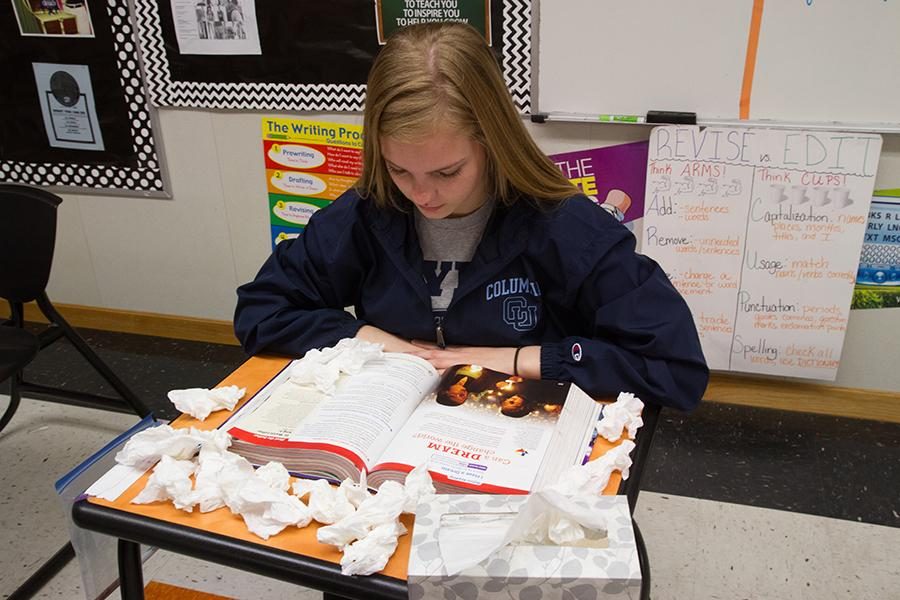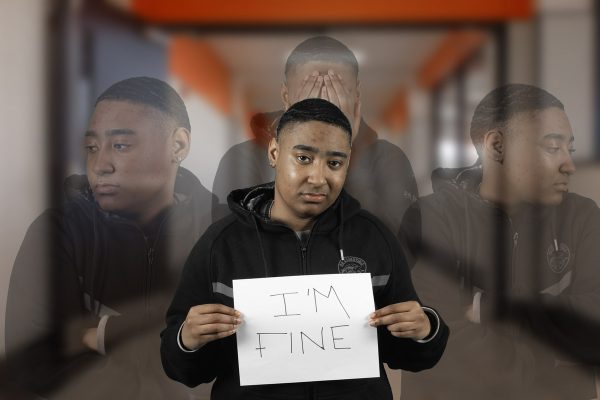Sick of tardies
Junior relays dislike of attendance policies
April 5, 2016
Ever since the government has started subsidizing schools for the students that show up, districts have instituted attendance policies to ensure that kids are in class for the majority of the year. While the attendance policy is necessary to make sure we actually come to school, the majority of its tenets have proved to be incredibly counterintuitive. Strict requirements of filling a seat mean that many students don’t get the full benefits of school, and have shifted the focus of education from actual learning to merely showing up.
A huge problem with strict attendance policies is that they cause kids to come to school when they really need to stay home. More than once, I’ve tried to persuade a sick friend from coming to school for a test. If you come to school sick, anything you touch becomes a possible way to infect someone else. And when someone else becomes infected, they either have to skip school or come to school sick themselves. The result is a vicious cycle of sickness, filled with tallies on your attendance sheet and days of suffering through one more class, worried more about how bad you feel than what the teacher is saying.
Another problem comes in the form of the mental health day. Rigorous classes sometimes come with so much work that it’s easy to get behind, especially if there’s some kind of emergency that makes a student unable to focus entirely on homework. Eventually it’s possible to get so behind that grades drop, and it’s much easier (and healthier) to skip a day of school every once in awhile than to pull an all-nighter and try to struggle through school the next day.
Being sick or exhausted at school usually ends up with several outcomes: you don’t pay attention, you fall asleep in class, you feel miserable and everyone around you tends to feel that way too. Wading through classes while you really need to be asleep means that you’ll probably miss the lesson anyway, so you might as well stay home and do something productive (like catching up on sleep).
While absences are excused if you have a doctor’s note, these excused absences don’t work at all for the final tally of absences for semester exam exemptions. Students are allowed two absences in each class before they aren’t able to exempt. So if you have a horrible case of the flu for three days, you have to take every single exam.
After a while, these policies start to seem like a punishment rather than a preventative. We aren’t allowed to be sick, take a mental health day or have any kind of emergency that could put us out of school for an extended period of time. All of this adds up to increased stress to not miss, possible bad grades on a semester exam you aren’t prepared for or even added worry during an out-of-town funeral or hospital visit.
There’s no cut-and-dry solution for the attendance policy dilemma; if there wasn’t a policy, most people wouldn’t bother coming to school at all. But the policy in place now is simply too strict to be considered good for the students. Administration should consider adding a number of sick days with the same technicalities as college visits: as long as you have a note, it doesn’t count as an absence. But if this is somehow impossible, they should just look for ways to make the policy less strict. They may find that it helps more than they thought it would.





















